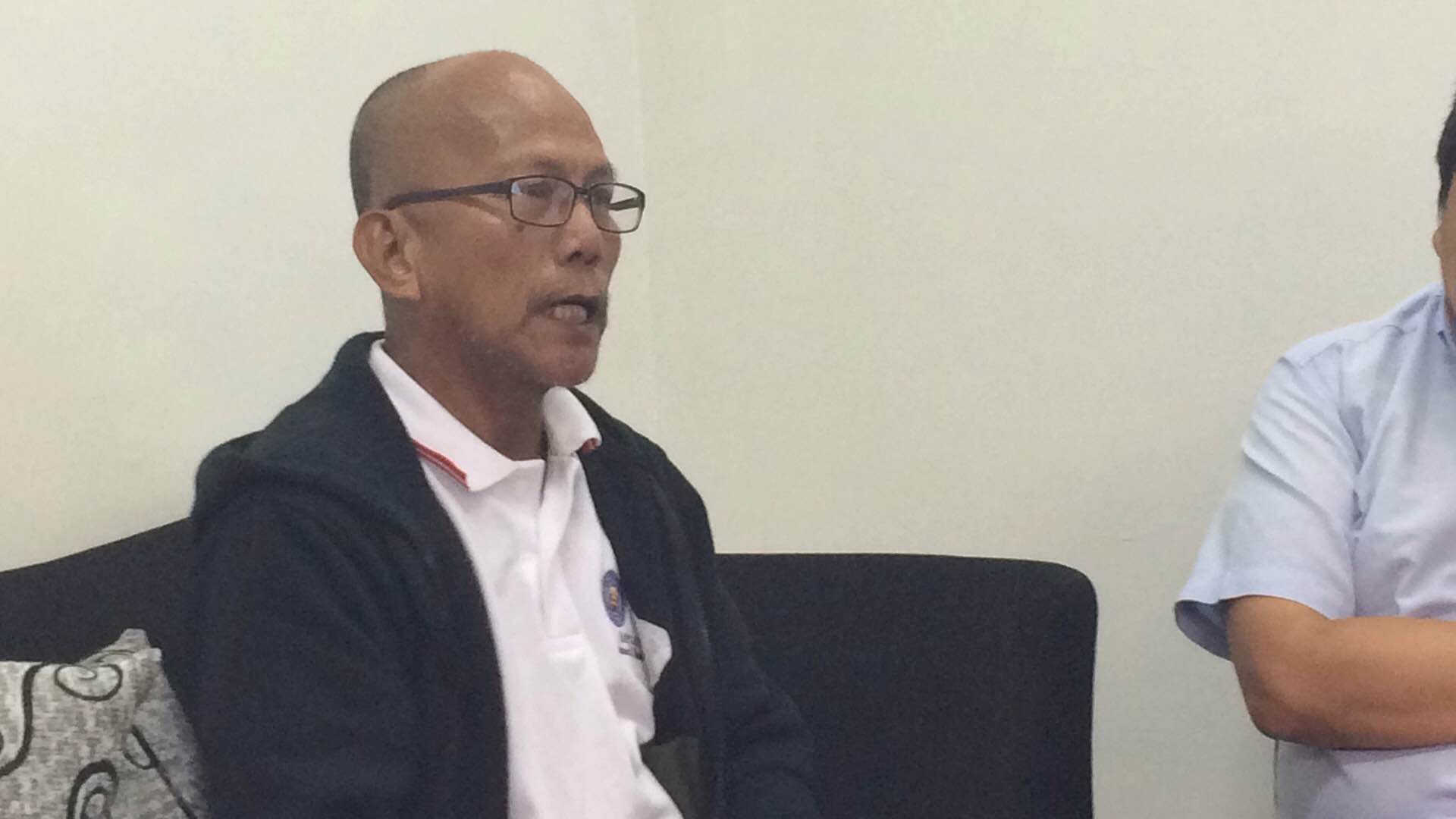SUMMARY
This is AI generated summarization, which may have errors. For context, always refer to the full article.

MANILA, Philippines – “Ang mukha ng kahirapan sa Pilipinas ay mukha ng mangingisda (Fishermen are the face of poverty in the Philippines),” said Eusebio Jacinto Jr of the National Anti-Poverty Commission (NAPC), as he urged the country’s next leaders to make uplifting the lives of fishermen a priority.
Jacinto and fisherfolk leaders held a press briefing on Tuesday, March 15, less than two months to go before the elections.
They said that candidates should present concrete ways to solve issues in the fisheries sector, and follow through on their plans if elected.
“Ang hamon sa mga lider natin ay kahirapan (The challenge for our leaders is poverty),” said Pepe Tanchuling, executive director of the Tambuyog Development Center.
Latest figures from the Philippine Statistics Authority (PSA) show that poverty incidence among fishermen is at 39.2%, while it is 38.3% for farmers. Poor among fisherfolk is “highest among the sectors,” Jacinto said.
According to Tanchuling, none of the national candidates have explicitly supported reforms in the fisheries sector. “I feel that no politician has been serious in facing the issues of the sector,” he said in Filipino.
Fisherfolk agenda
Tanchuling and Pablo “Ka Pabs” Rosales, president of the Progresibong Alyansa ng mga Mangingisda (PANGISDA), said that groups and individuals from the sector will assemble in Calamba, Laguna on Thursday, March 17, to voice out their concerns and to propose the main points of their agenda for 2016.
The NAPC Artisanal Fisherfolk Sectoral Council, Tambuyog Development Center, and NGOs for Fisheries Reform helped create the 9-point Fisherfolk Agenda for 2016 to be launched this coming Thursday.
According to Tanchuling and Rosales, the main points of the agenda are:
- Establishment of fisherfolk settlements and community fish landing centers in Yolanda-affected areas and in Laguna Lake;
- Development of sustainable livelihood that uses eco-friendly technologies and post-harvest processing facilities; and
- Stricter and effective fishery law enforcement through the active participation of Bantay Dagat
Tanchuling also highlighted the problem of managing the sector as a devolved function. “Because this is devolved, agri-fisheries is not a priority in the rural areas. Programs are usually spearheaded by the national government, thus there is dependency on the national government,” he said in Filipino.
“Kung sisikapin natin, ibigay ang programa sa lokal na pamahalaan. Hamon ito sa maluluklok na presidente ng ating bansa,” he added. (If possible, devolve the [national government’s] programs to the local government. This is the challenge to the elected president of our country.)
‘Pro-poor’ president
Tanchuling said that the reforms they seek are only possible if a “pro-poor” president is elected.
All presidential candidates have promised pro-poor policies, but so far, only Liberal Party standard-bearer Manuel “Mar” Roxas II, Davao City Mayor Rodrigo Duterte, and United Nationalist Alliance (UNA) standard-bearer Vice President Jejomar Binay have cited some concrete plans for the fisheries sector.
During the first presidential debate in Cagayan de Oro City last month, Roxas outlined his programs for the fisheries sector. Roxas promised, if elected, that he would give priority to the following to help the sector:
- cheap loans
- new technology such as fish finders
- post-catch facilities such as chillers
- infrastructure
In the same debate, Duterte said that he would push for credit cooperatives among the fisherfolk.
In a Philippine Star report, Binay was quoted as saying that he would implement capacity-building programs for fishermen so they may get financial loans.
“Pushing [for the agenda] of the sector is an imperative because if nobody does, it will be ignored,” Jacinto said. This is even more critical, he added, as administrations are changing. – Rappler.com
Add a comment
How does this make you feel?
There are no comments yet. Add your comment to start the conversation.